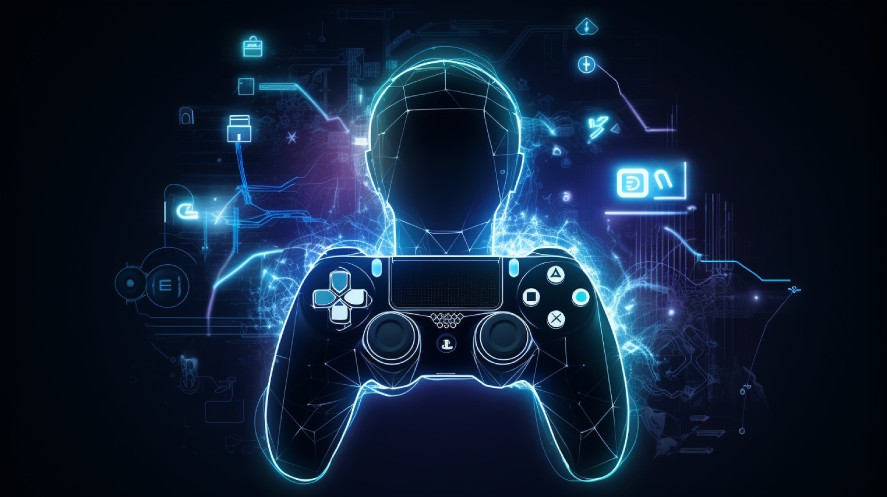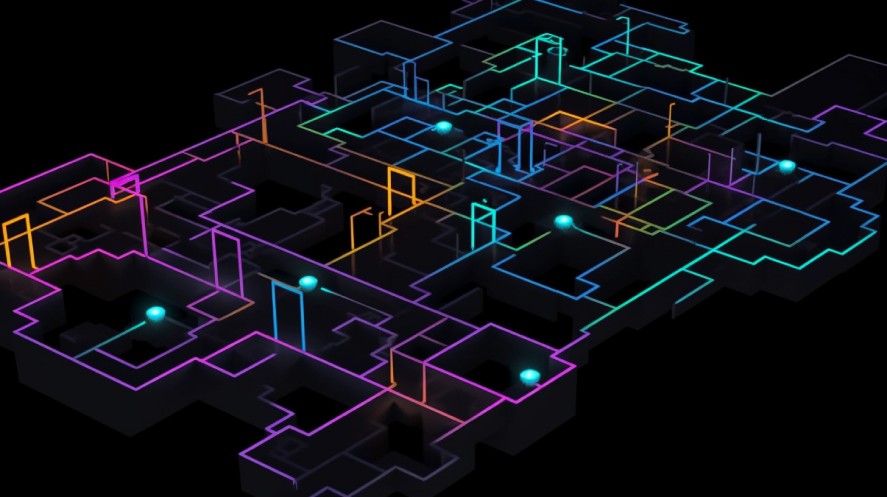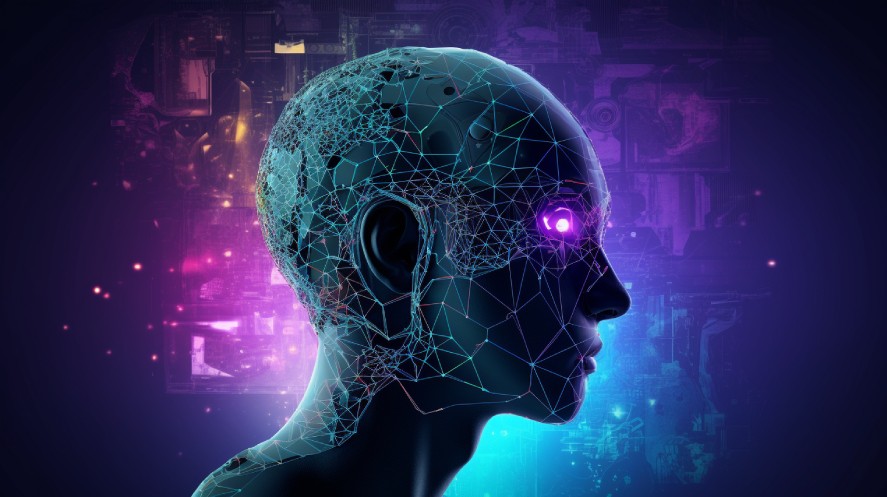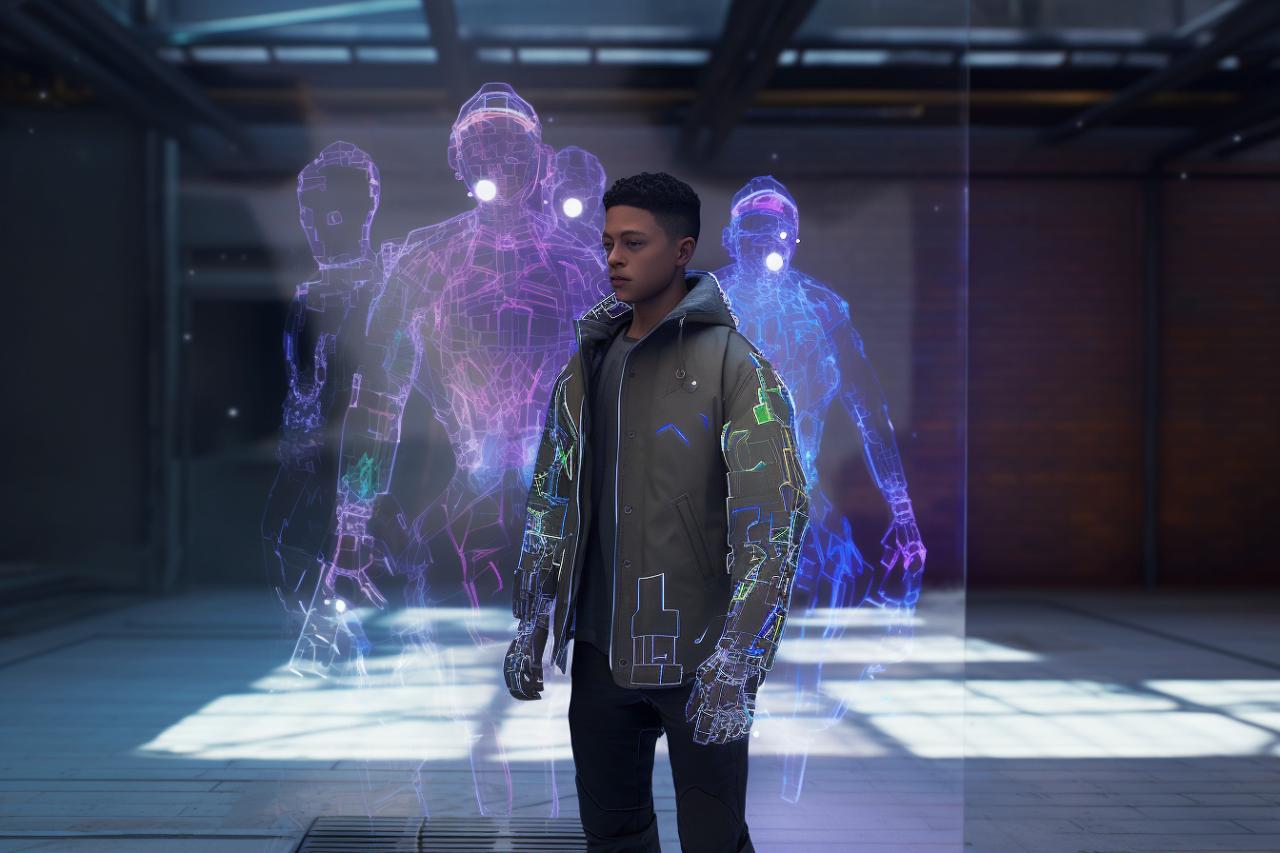The world of video games has witnessed an incredible transformation driven by technological advancements and the creative visions of game developers.
At the forefront of this revolution is the integration of Artificial Intelligence (AI) technologies, which have the potential to reshape the way we play.
In this article, we delve into the fascinating world of AI in video games, exploring its profound impact, innovative applications, and the future it holds.
The Confluence of AI in Video Games
AI and video games have converged in a remarkable manner, transforming the gaming landscape and elevating player experiences to new heights.
The integration of AI in video games has redefined player experiences, enabling games to dynamically adjust and respond to player actions.
This has given rise to immersive storytelling, realistic environments, and intelligent non-player characters (NPCs), making gameplay more engaging and captivating.

As a result, players are no longer mere spectators but active participants in ever-evolving virtual worlds.
With procedural generation AI, games can offer vast, procedurally generated worlds that provide endless exploration and discovery.
Furthermore, adaptive game AI algorithms can adjust gameplay difficulty on the fly, ensuring that players are continuously challenged and engaged.
In conclusion, the convergence of AI and video games has revolutionized the way we play.
As AI technology continues to advance, we can anticipate even more groundbreaking applications of AI in game development, offering players unprecedented levels of engagement, personalization, and excitement.
Understanding the AI Technologies Utilized in Video Games
To comprehend the impact of AI in video games, it is essential to grasp the various AI technologies employed in their development.

Let’s explore some of the key AI technologies utilized in video games!
1. Pathfinding AI
Pathfinding AI algorithms enable intelligent navigation for characters and entities within games, allowing them to navigate intricate environments with precision and efficiency.
It also enhances the realism and immersion of in-game interactions by determining the optimal routes, avoiding obstacles, and responding dynamically to the player’s actions.
2. Tactical AI
Tactical AI empowers non-player characters (NPCs) to make intelligent decisions during combat or strategic scenarios.
NPCs with tactical AI can exhibit adaptive behaviors, responding to changing circumstances and providing players with challenging and engaging gameplay experiences.
3. Strategic AI
Strategic AI focuses on long-term planning and decision-making in AI-powered games.
This form of AI is often employed in strategy and simulation games, enabling AI-controlled factions to craft complex strategies, adapt to player actions, and provide diverse and challenging gameplay scenarios.
4. Machine Learning and Deep Learning
Machine Learning and Deep Learning techniques allow AI systems to learn and improve from data.
In the context of video games, these techniques enable the development of adaptive gameplay mechanics, realistic character behaviors, and sophisticated procedural content generation.
5. Reinforcement Learning
Reinforcement Learning algorithms enable AI agents to learn through trial and error. This includes receiving rewards for positive actions and penalties for negative ones.
This AI paradigm creates dynamic and intelligent opponents that can adapt their strategies based on player behavior, providing unique and personalized gaming experiences.
Innovative AI Applications in Video Game Design
The integration of AI technologies in video game design has given rise to innovative applications that transform the gaming landscape.

Let’s explore some of the groundbreaking ways AI is revolutionizing video game design!
1. Procedural Content Generation
AI-driven procedural content generation automates in-game content creation such as levels, environments, quests, and items.
This approach ensures endless possibilities, fostering unique and immersive gaming experiences.
2. NPC Behavior
AI-controlled non-player characters with realistic behaviors and emotions enhance the depth and authenticity of video game worlds.
These NPCs can exhibit complex personalities, and interact dynamically with players and other AI game characters. They adapt their behaviors based on the game’s narrative and player choices.
3. Adaptive Gameplay
AI-powered adaptive gameplay adjusts the game’s difficulty level based on the player’s skill and performance.
This dynamic AI-driven game development system ensures an engaging and challenging experience for players of all proficiency levels.
4. Realistic Physics and Simulations
AI algorithms enable the creation of realistic physics and simulations within video games.
This technology enhances immersion, allowing players to experience lifelike interactions and environments that respond realistically to their actions.
Check out this “Here Are 10 Reasons You Should Work With a Game Publisher” article for more reasons to work with video game publishers.
Case Studies: AI in Popular Video Games
To understand the practical applications of AI in gaming, let’s explore a few noteworthy AI games!
Case Study 1: Left 4 Dead
The adaptive AI in Left 4 Dead utilizes AI Director technology to dynamically adjust gameplay elements such as enemy placement, item distribution, and environmental hazards.
This AI-driven system ensures a unique and intense gaming experience with unpredictable challenges.
Case Study 2: The Witcher 3
The Witcher 3 showcases the role of AI in creating a living, breathing world.
AI-driven NPCs exhibit realistic behaviors, engage in dynamic conversations, and respond to the player’s actions, creating an immersive and authentic gaming environment.
Case Study 3: Dota 2
Dota 2 leverages machine-learning techniques to enhance the game’s combat system.
AI algorithms analyze vast amounts of gameplay data to optimize hero balance, predict player actions, and improve the overall gameplay experience.
The Future of AI in Video Games
The future of AI in video games holds immense potential as ongoing research and technological advancements continue to push the boundaries of what is possible.

Let’s explore some exciting developments and potential applications that lie ahead!
1. Emotional AI
Emotional AI focuses on creating more believable and emotionally responsive characters and NPCs.
Games can offer more realistic interactions and emotional connections between players and virtual characters by incorporating advanced algorithms that analyze facial expressions, voice tone, and body language.
This can result in more immersive narratives and engaging gameplay experiences.
2. Interactive Storytelling
AI is poised to revolutionize interactive storytelling in video games.
With advanced natural language processing and machine learning algorithms, games can dynamically adapt and generate narratives based on player choices and actions.
This opens up a world of possibilities for branching storylines, personalized character arcs, and player-driven narratives.
Players can shape the story and influence the outcome, leading to more engaging and meaningful experiences.
3. AI and Game Design
Imagine having an AI-powered game designer who creates unique, custom game experiences tailored to your preferences.
This concept involves AI systems that learn from individual players’ gaming habits, preferences, and skill levels to generate personalized content.
From level design to enemy behavior, these AI game designers can ensure that every player has a unique and enjoyable experience. They effectively blur the line between human-designed and AI-generated content.
4. AI and Virtual Reality Gaming
Virtual reality (VR) gaming is gaining popularity, and AI can play a crucial role in enhancing VR experiences.
AI algorithms can analyze player movements and interactions within the virtual environment, allowing for more realistic and responsive interactions.
AI can also assist in creating more immersive and dynamic virtual worlds by generating realistic physics simulations, spatial audio, and intelligent NPCs that respond convincingly to player actions.
5. AI and Augmented Reality Gaming
Augmented reality (AR) gaming combines virtual elements with the real world, and AI can enrich these experiences.
AI-powered computer vision algorithms can recognize and interpret real-world objects, enabling virtual elements to interact seamlessly with the environment.
This opens up possibilities for AR games incorporating intelligent NPCs, dynamic environmental changes, and interactive gameplay mechanics responding to the player’s surroundings.
6. Artificial Intelligence Gaming Platforms
AI is set to play a significant role in the development of dedicated gaming platforms.
These platforms will leverage AI technologies to enhance various aspects of gaming. This includes player matchmaking, game recommendation systems, and adaptive difficulty levels.
By analyzing player data and preferences, these platforms can provide tailored gaming experiences and foster a more engaging and immersive environment for players.
7. Artificial Intelligence in Mobile Gaming
Mobile gaming continues to grow in popularity, and AI is poised to significantly impact this space.

AI algorithms can optimize mobile games for performance, battery efficiency, and network connectivity.
Additionally, AI-powered virtual assistants can enhance the mobile gaming experience by providing in-game guidance, personalized recommendations, and real-time assistance.
Check out the “The 8 Best Mobile Game Publishers for Indie Developers” article to learn more about where you should publish your mobile games.
8. Game Engines
Game engines are at the core of video game development, and AI integration within game engines is set to transform the industry.
That said, game engines equipped with AI capabilities can streamline development processes, automate tasks, and provide intelligent tools for designers and developers.
These AI-powered game engines can enhance game physics, graphics, and audio, resulting in more realistic and immersive gameplay experiences.
Conclusion
AI has become an integral part of the video game landscape, revolutionizing gameplay and pushing the boundaries of what is possible.
The seamless integration of the gaming industry and AI has transformed the gaming experience, enabling adaptive gameplay, realistic simulations, and dynamic worlds.
As we move forward, the future of AI in gaming promises even greater innovation and possibilities. This provides gamers with extraordinary experiences that transcend imagination.
Loading survey...

